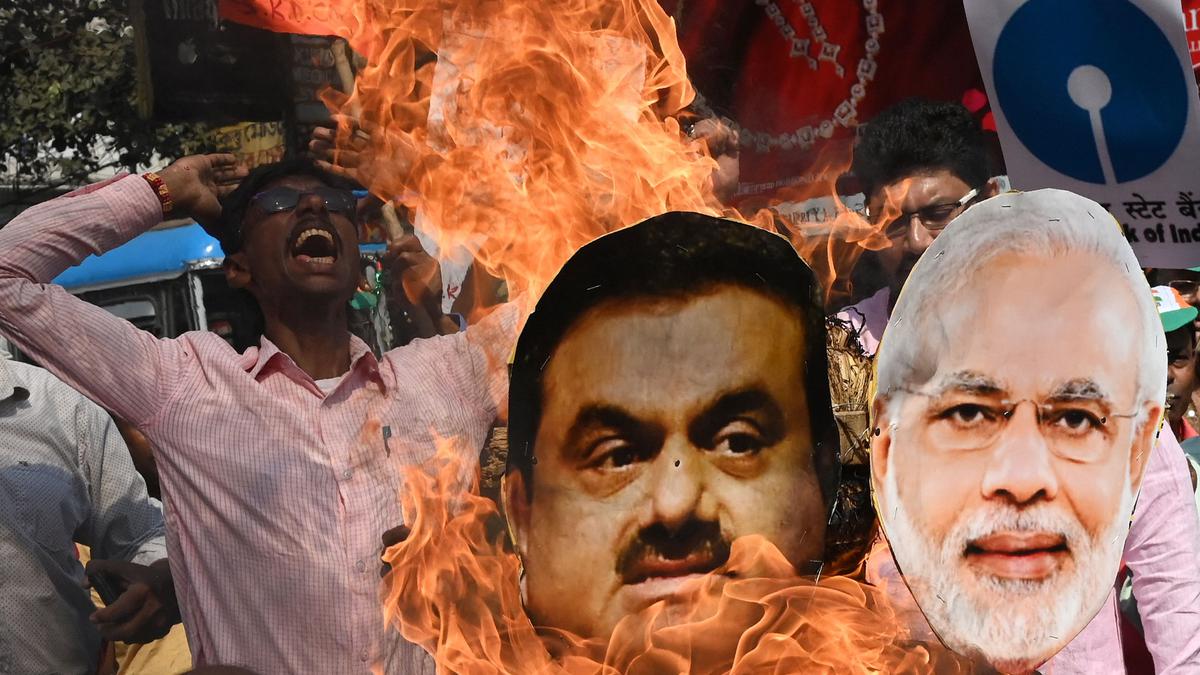- The Securities and Exchange Board of India (SEBI) was charged with examining charges relating to the Adani-Hindenburg affair after a Supreme Court ruling in March 2023.
- The Organised Crime and Corruption Reporting Project (OCCRP) recently released new allegations against the Adani Group, heightening the attention.

The claims made by the OCCRP against Adani Group
- The Adani Group is accused of stock manipulation in the OCCRP report.
- The story cites exclusive papers revealing that Adani family investors affected the stock prices of Adani enterprises.
- The Adani Group has categorically disputed the charges, blaming them on “Soros-funded interests.”
What is OCCRP?
- The OCCRP (Organised Crime and Corruption Reporting Project) is a global network of investigative journalists.
- OCCRP, founded in 2006 by Drew Sullivan and Paul Radu, focuses on researching organised crime and systemic corruption.
- OCCRP now has over 150 journalists in 30 countries and works with regional partners and organisations such as the Global Investigative Journalism Network.
The Impact of OCCRP
- OCCRP’s investigations have resulted in several official investigations, arrests, resignations, and large fines.
- It was crucial in high-profile investigations, such as those of Russia’s billionaires and the Panama Papers project.
- For its achievements to exposing governmental corruption and organised crime, the organisation has been nominated for the Nobel Peace Prize.
The SEBI Investigation
- The Supreme Court instructed SEBI to look into Rule 19A violations, non-disclosure of related party transactions, and stock price manipulation.
- According to the OCCRP investigation, Mauritius-based funds linked to the Adani family invested in Adani company equities.
- The investment funds allegedly paid advising fees to a UAE-based entity affiliated to Adani.
- The facts presented by the OCCRP, as well as the Hindenburg report, point to potential regulatory violations and contraventions by the Adani Group.
Deciphering Rule 19A
- Rule 19A of the Securities Contracts (Regulation) Rules, 1957 is a crucial clause.
- It requires that any company listed on the Indian stock exchange maintain a minimum of 25% public equity.
- In this usage, “public” refers to anyone other than the “promoter and promoter group.” These words include the company’s subsidiaries and associates as well as immediate family members.
- This regulation ensures that a sufficient number of shares of a publicly traded corporation are accessible for trading, facilitating price discovery.
SEBI’s Reaction and the Expert Committee
- SEBI is investigating the Adani-Hindenburg case, with some probes still underway.
- The Expert Committee has identified regulatory gaps that enable the hiding of “ultimate beneficiary ownership” and transactions with “related parties.”
- SEBI’s handling of Adani stock alerts, as well as its appraisal of suspected FPIs, has sparked concerns about its involvement.
Source: https://www.thehindu.com/business/Economy/explained-decoding-the-occrps-adani-report/article67257280.ece
